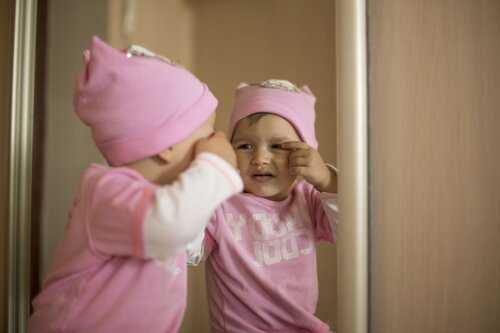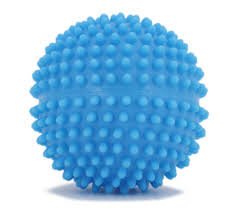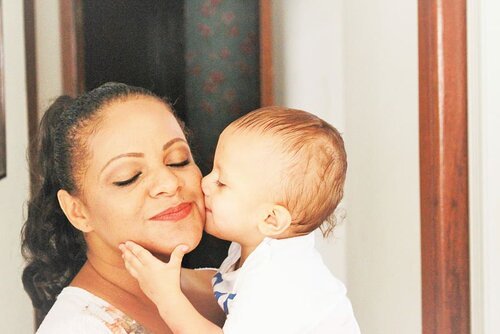Top 5 Toys to Support Your Baby's Development
(Originally printed and distributed by email. To sign up for emails like this, click here.)
It seems as if every other toy in the toy store these days is labeled "STEM" (science, technology, engingeering, and math) or STEAM (add art in there for a well rounded child!). Does this mean we need to buy toys with this label because they will make our child smarter, faster, and more successful? Or does it simply reveal how much pressure is on parents to create the perfect learning conditions for our children?
Instead of working so hard to find the right toy, I suggest below five simple approaches to toys that deeply support your baby's development while also supporting family simplicity (for making sure you have time for the important things in life.
Although I am tempted to pick natural, cheap, and very open ended toys (sticks from the yard and couch cushions from the couch still provide hours of play for my five to ten year olds), after weeks of social distancing, a novel toy may be the difference between doldrums and delight for many of your kiddos!
Keep in mind that the "STEM" (science, technology, engingeering, and math) label on many toys is more of a marketing tool to appeal to our parenting insecurities and the pressure we put on ourselves. We want the best for our kids, and the message we get is clear: buy particular toys to give our kids the "best" start. These toys can be wonderful additions to even the most minimalist play space. However, sticks, cushions, duplo, cardboard boxes, and wooden blocks most certainly qualify as STEM toys by supporting spatial, fine motor, social, creative, relational, and problem solving skills. Does this mean we need to buy toys with this label because they will make our child smarter, faster, and more successful? No. The world is ripe with opportunities to support curiosity and cognitive development: no purchase necessary.
Toy #5: A mirror.
Image: baby sitting and looking at their reflection in in wall mirror, pointing to their eye. Image in public commons.
Whether you're going on a long road trip or are working on tummy time, a small mirror can be a great addition for keeping up curiosity and developing a sense of physical self-awareness in young babies. Aside from your own face, your baby's reflection in the mirror can encourage them to lift their head. At later ages, mirrors continue to delight when it comes to imitating sounds and facial expressions, and building on self-awareness.
Toy #4: The simple and time-tested ball.
Image: multi-coloured flexible “o-ball”, hollow and easily grabbable.
Although there is a huge variety of balls out there (o ball, and a sensory ball are pictured above) any ball that is large enough not to be a choking hazard and small or easy enough to grasp can provide a lot of fun in self-directed play or in turn taking. This kind of toy, like the others on this list, truly "grow" with your baby as their skill in handling it grows too.
Initially, just grasping an o ball is an amazing skill. Later, the skills of batting balls while lying on the floor, holding smooth ones, or rolling the ball with control and accuracy develop. Of course, this is just the beginning: years from now spiking a volleyball, swinging a golf ball, and connecting with a baseball may be the activity of choice. It all starts here!
Image: bumpy textured blue ball, Sensory ball: photo in the public commons.
Toy #3: A cardboard box.
Like the block, the cardboard box they came in requires no batteries. Sure it's breakable, but it's easily replaced, and certainly helps show children that sitting on it will often crush it (voila! Cause and effect!). Not only that, but boxes can become all sorts of things (from imaginary mailboxes to robot helmets).
For wee ones who are now combining and releasing blocks from their hands deliberately, a box or any container becomes a very rewarding experience in controlled release: if the block makes a rewarding noise when it hits the bottom, even better!
Image: Anna Schvets. Pexels. Description: young boy sitting happily in a cardboard box.
Toy #2: The humble wooden block!
It doesn't have batteries. It is virtually unbreakable. And it can do and be almost anything your child can imagine. From the earliest of grasps, to building replicas of the Eiffel Tower, your child will find ways to play with a wooden block for years. (And if you find yourself with some free time and haven't tried building something with wooden blocks lately, give it a try! It's a prime example of an "open ended" toy ).
Further, a wooden block usually has some texture and some weight to it, which is great for babies learning to integrate their senses and understand their bodies, and where their bodies are in space. Although colourful blocks are fun, plain jane wooden blocks are just as great for focusing more on simply building.
Image: Photo in the public domain. Description: young child's legs and feet, in tailor position, in background. Colourful rectangular wooden blocks scattered in foreground.
Toy #1: You!
A baby is born to want proximity to you, to attach to you, and to imitate you. The synapses that connect early on to result in parental face recognition (even in research studies that mixed up all the facial features) demonstrate just how important you are to your child's brain development.
You are your child's best toy!
Beyond the early months, the communication and play that you and your baby enjoy together, and the proximity and unconditional love you provide continue to build your child's development emotionally, physically, and cognitively. You are enough!
Image: Creative Commons Public License. Image from Piqsels. Description: infant holding soother, staring with interest at person outside of camera shot.
Now that you can see how simple toys can be in order to best support your baby's development, I hope it reassures you that despite coveting the wooden dollhouse you never had as a child, or wishing you could buy all the HAPE toys in the toy catalogue, what your child has is likely enough —especially since they have you!
Warmly,
Heather Boyd, O.T. Reg. (Ont.)
Family Sleep and Development Consultant
(For more topics and discussions on this and other sleep and development topics, enroll in the next Infant Development Circle.)






